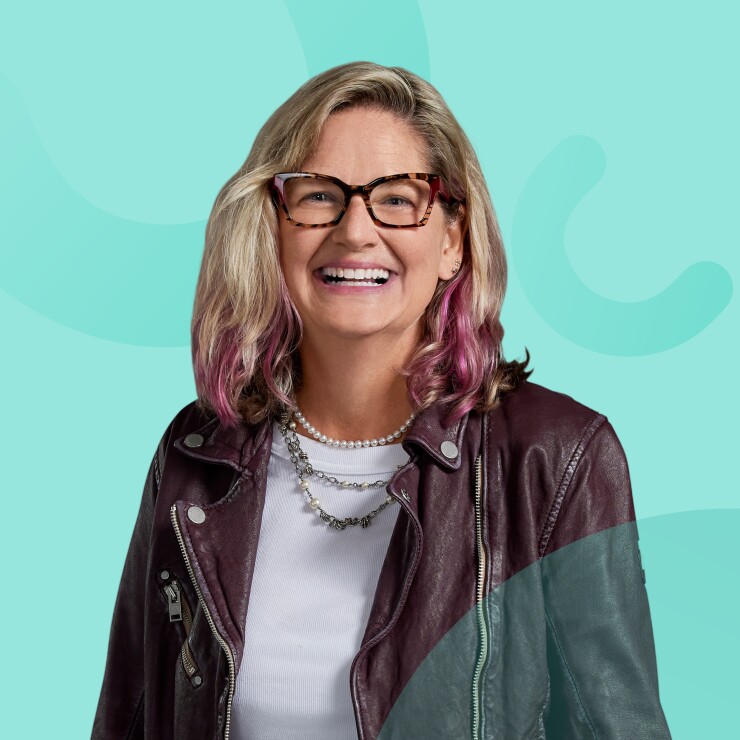When Pat Wadors first realized she wanted to be a
"[Back then], women were not heads of HR, and I was like, 'I'm going to run it,'" says Wadors. When she shared her plan with her uncle, who worked in the HR industry, he encouraged her to instead be a recruiter or an analyst, and she simply replied: "'Yes, I'm going to do all that and more.'"
She didn't go back on her promise. Wadors has now spent decades in
"I get to help employees, I get to manifest better products for our customers and services," she says. "I get to share our learnings and my lessons and mistakes and learn from others. That's why I'm here."
Read more:
Wadors recently sat down with EBN to talk about how adversity made her a better, more compassionate leader, why diverse teams make for great business and the importance of a good night's sleep.
You've come a long way since deciding you were going to lead an HR department one day. What did that journey look like, and what were some challenges that helped shape you along the way?
The first decade was learning the craft and doing the rotations, and part of it was in benefits and comp. And then I spent a decade learning how to lead others and manage and do complex programs. I jumped in and out of HR a few times, learning systems and manufacturing operations and change management, but I always came back with the business knowledge. HR is business: It's operationalizing the company through their talent. In that third decade, I became the CHRO.

Other than the proverbial glass ceiling that existed when you were starting your career, what personal hurdles did you overcome while building your professional path?
Back when I went to the college career center, I was diagnosed with dyslexia, and it was so freeing for me. I realized I was smart, I just have a hitch in my giddyup, right? I learned to be resilient and gritty and tenacious in my approach — I wouldn't let myself fail. I found ways to learn despite my challenges, and I use that core skill set today. When someone says, "I don't understand," I will reframe a problem in different ways. I am fearless now in saying "I don't understand, can you show me another way?" That self application is like a contagious energy boost for others, because there's no such thing as a dumb question.
Read more:
How did this experience help you recognize the importance of diversity in talent?
About 20 years ago, I realized that I was intuitively building teams that not only had diversity in experience and skills, but diversity in spirit and approach — they thought differently.
[Hiring isn't] about the person with a comp expertise and the person who had recruiting experience or whatever craft you want to talk about. I need a lightning rod of employee morale, someone walking around the hallways who people naturally want to talk to and trust. I needa devil's advocate. I want someone to have the courage to be a critical thinker, no matter what the process is — thinking and looking around the corners at what could fail. I want an optimist, because what we do in HR is extremely hard. And when we're in the dumps about how hard things are, I need you to speak up about why we do what we do, and why it's so good and how we're going to have an impact.
Read more:
What are some ways you recalibrate and practice self-care? How does this help your team do the same?
I'm a huge advocate of sleep. Having a rhythm no matter what timeframe I'm in is super important. The other thing I do is exercise — I ride my bike. I'm an artist. When I'm in a meeting or feeling anxious about a pre- meeting of something, I may doodle a little bit and slow my neurological roll so I'm more present, and it only takes me five or 10 minutes and I can adjust.
I have learned over time how to balance my energy because I give so much to people. I eat by myself. I will take a walk by myself. I will give myself permission to cancel a meeting so I can be my best self for that thing that's super important. I tell my team when I'm home sick because I want them to know it's okay to be sick and home and snuggled in bed. I want them to know it's okay to take a breather.
What are some of your goals for this upcoming year?
Professionally I'm having a hell of a time building my team and watching them flourish. They respect each other, rumble with each other and learn from each other — their differences and their alignment. It's a mindset, and they're doing it. They're going to do some hard work this year, but they're ready. I'll be here two years in the operating role in April, and I told them it takes 18 months to get a team on the balls of their feet. So for me this year is about watching them bloom and their impact on the company. I geek out on that.






